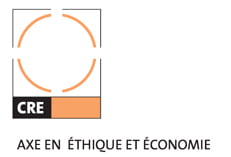
Réaliser une société juste: Organisations égalitaires ou État-providence capitaliste?
2910 Boulevard Edouard-Montpetit
Université de Montréal, Montréal, QC H3T 1J7
Canada
Le CRÉ a le plaisir de recevoir Thomas Ferretti – doctorant, Université catholique de Louvain, chaire Hoover d’éthique économique et sociale.
Résumé
Comment réaliser une société qui respecte les principes de justice libéraux égalitaires ? John Rawls suggère des arguments en faveur d’une Démocratie des Propriétaires (il s’interroge même sur le rôle des entreprises démocratiques) et critique l’Etat Providence Capitaliste. Mais, de son propre aveu, ses remarques sont intuitives et imprécises (Rawls 2001 : 135-136). Mon objectif sera de clarifier le débat existant concernant ces deux systèmes socio-économiques.
(1) Je reconstruirai d’abord la distinction entre les principaux systèmes concurrents, notamment pour clarifier ce que pourrait être une Démocratie des Propriétaires (DP) et ce qui caractérise l’Etat Providence Capitaliste (EPC), et pour mettre en évidence l’enjeu majeur de ce débat.
(2) Je résumerai ensuite les deux principaux arguments libéraux égalitaires en faveur de l’EPC.
(3) Cependant, de nombreux auteurs provenant de divers traditions normatives, ont offert des critiques de « l’Etat Providence » et ont tenté de montrer pourquoi un tel système était insuffisant pour réaliser la justice. Je montrerai que leurs critiques ne sont pas justifiées dans un cadre libéral égalitaire. La seule stratégie argumentative compatible avec cette théorie consiste à prouver que les mécanismes de compensation des inégalités, caractéristiques de l’Etat Providence, seront toujours incapables de corriger adéquatement les injustices distributives.
(4) Finalement, je proposerai trois arguments pour le prouver.
Realizing a Just Society: Egalitarian Organizations or Welfare State Capitalism?
Abstract
How to realize a just society according to the liberal egalitarian ideal? John Rawls himself is in favor of a Property Owning Democracy (he even considers the role of democratic firms) and he argues against Welfare State Capitalism. But his remarks are, in his own words, “rough and intuitive” […] “illustrative and highly tentative” (Rawls 2001: 135-136). My aim is to clarify the ongoing debate concerning those two socio-economic systems.
(1) In order to highlight the main issues in the debate, I will first reframe the debate in order to clarify the distinction between various competing systems, to define what a Property Owning Democracy (POD) could be more precisely, and what Welfare State Capitalism (WSC) is.
(2) I will then summarize the two main liberal egalitarian arguments in favor of WSC.
(3) Many authors from various normative traditions have criticized the “Welfare State” and tried to show why this system is insufficient to realize justice. However, I will show that that their objections are not justified in a liberal egalitarian framework. The only strategy compatible with liberal egalitarianism consists in proving that compensation mechanisms used by the Welfare State are always incapable of adequately correcting all distributive injustices.
(4) Finally, I will propose three arguments to prove this point.
The presentation will be given in French, but questions can be asked in English or French.



